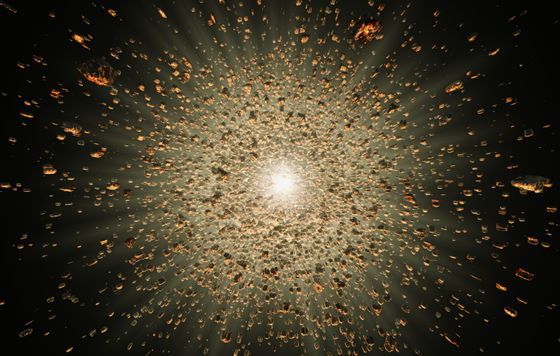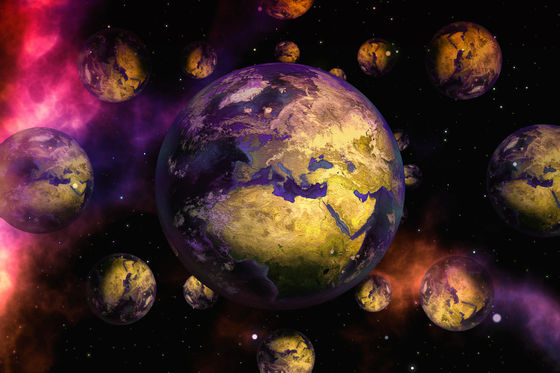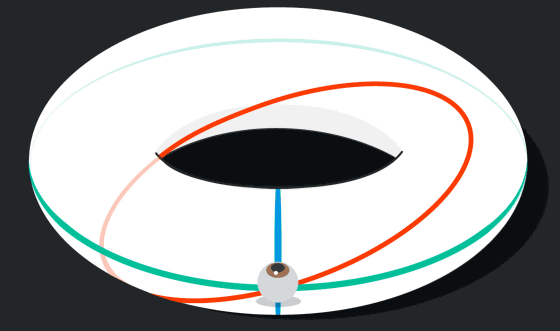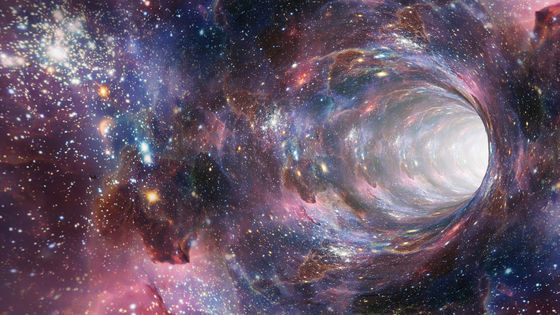Five experts explain 'Is there an end to the universe?'

The universe is vast, and even with modern human science and technology, the
Is space infinite? We asked 5 experts
https://theconversation.com/is-space-infinite-we-asked-5-experts-165742
◆ Answer 1: 'Unknown'
The answer from Professor Anna Moore, an astronomer at the Australian National University, is 'I don't know.' At the very least, we know that the observable universe began in the Big Bang about 13.8 billion years ago, which means that at least the age of the universe is finite. However, the universe created by the Big Bang has been getting bigger and bigger in every direction since then, and its speed is accelerating. Therefore, it is not possible to determine whether the universe is infinite or finite from the observation records obtained so far.

But it's not without hints. The remnants of the Big Bang, the beginning of the universe,
◆ Answer 2: 'Infinite'
Sarah Webb, an astrophysicist at Swinburne University of Technology, is convinced that the universe is infinite. Observations so far have shown that the age of the universe is about 13.8 billion years, while the observable size of the universe is 46 billion light-years. According to Webb, this difference can be explained by eternal inflation.
The permanent inflation, 'inflating universe exponentially inflation is a theory that has continued forever in the majority of the universe, not only in the universe was calm happens to inflation portion that is seen humanity'. In addition, this theory affirms the multiverse theory that 'a large number of universes are born in addition to the universe where human beings are.'

Regarding the idea that the universe will continue to expand forever, Mr. Webb said, 'There is a theory that inflation is always occurring somewhere in the universe, and there are countless universes. For me as a science fiction lover, this is true. I can't help but want it. '
◆ Answer 3: 'Infinite'
Mr. Hill commented on the way the universe should be, 'We live in an infinitely flat space like paper. The universe became flat because of the rapid expansion that occurred when the universe was born, so-called inflation. It is believed that inflation is occurring not only when our universe was born, but also in other universes, and how big the entire universe, the multidimensional universe, is. I can't imagine it, but in other words, it may be that 'the infinite universe is easier to imagine than the finite universe.'
◆ Answer 4: 'Limited'
'The idea that the universe is infinite is fascinating, but I think it's wrong,' said Sam Baron, an astronomer at the Catholic University of Australia. Associate Professor Baron does not think that the universe is interrupted somewhere. Instead, Associate Professor Baron thinks, 'I think the universe has a torus shape like a donut.' In other words, no matter how far you go on a spaceship, you will not hit the edge of the universe, but it is spatially finite.
You can understand the idea that 'the universe is a torus' by reading the following article.
What is the 'shape of the universe' that can be seen from the angle of a triangle? --GIGAZINE

Associate Professor Baron said, 'If the universe is shaped like a donut, the light emitted from a star and directed in different directions will bend according to the shape of the universe and will eventually intersect at some point. If you stand, you will see the same star floating in different directions. To confirm that, astronomers have already begun research to find the same pattern in the remnants of the Big Bang. The universe is finite. No conclusive evidence has yet been found to show that, but there may be some new discoveries in the future. '
◆ Answer 5: 'Limited'
Kevin Orrman-Rossiter, who studies the history of science at the University of Melbourne, believes that 'the universe will come to an end someday.' In other words, if the time is finite, the extent of the universe is also finite.

'The universe started about 13.8 billion years ago and continues to expand. The question of whether this expansion will continue or turn into contraction is an important issue in cosmology,' said Orrman-Rossiter. To unravel it, we will have to understand the nature of dark matter and dark energy. '
The answers of the five experts were 'Unknown 1, Infinite 2, Limited 2', and the result was that there were two opinions among the experts as to whether the universe was infinitely wide.
Related Posts:
in Science, Posted by log1l_ks







